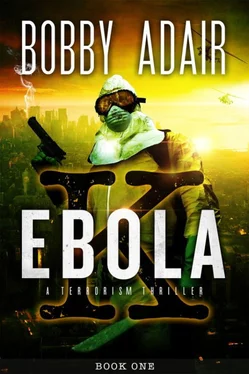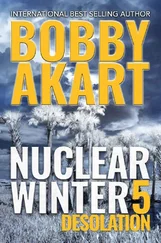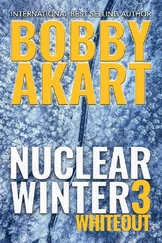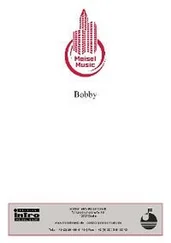The kicker was that Austin, Paul’s son, was already in Uganda for the summer.
Paul had been passively fretting over the stories out of Africa for weeks, thinking about his son near some little town named Mbale, close to the Kenyan border. Paul searched his usual news websites for information. He surfed sites he’d never heard of, groping for headlines. He researched the disease on Wikipedia to fill the gaps in his media-based knowledge of the disease. Through the process, his worry grew.
He checked a map program for the distance between Monrovia, the capital of Liberia, and Kampala, the capital of Uganda. He sat back in his chair, astounded. A little relieved, but astounded.
The distance from Los Angeles to New York in a country with arguably the best transportation infrastructure in the world was just under twenty-eight hundred miles. The distance from Monrovia to Kampala was over four thousand. He had never realized the tremendous scale of Africa.
How likely was it that anyone with the disease could get himself from Monrovia to Kampala, let alone Mbale, across thousands of miles of dirt roads—and a lot of them had to be dirt roads—or even by airplane? Paul decided that chance was small. Poor Africans weren’t as mobile as affluent Americans and Europeans. Ebola was more likely to leap to London or New York than it was to Uganda.
And that gave Paul comfort. Austin was as safe from Ebola in Mbale as he was in Denver.
It was after the networks reported the story of two Ebola-infected doctors being flown from West Africa to Atlanta that Paul’s concern ratcheted up again.
Bringing Ebola to America on purpose. What the fuck kind of craziness was that?
Paul put serious thought into driving down to the wholesale club and loading his truck with rice, beans, and peanut butter, or whatever the hell preppers stored in their basements. But he didn’t. Instead, he vented his concerns in an evening of ranting on various Internet forums.
Now, Paul Cooper was sitting in his cubicle staring at a spreadsheet full of esoteric formulae when his phone chirped with an incoming text message. Heidi, with her own fears growing, told him that a traveler returning from West Africa had been hospitalized in New York and was being tested for Ebola.
“Shit.”
Someone in the next cubicle said, “Huh?”
Paul didn’t respond. He was thinking about what would happen if the Ebola virus got a foothold in America.
He’d read enough about Ebola to know it spread through the transfer of bodily fluids or maybe just by skin touching skin. That was a big maybe to bet one’s life on. He also read enough to know that the idiosyncrasies of many African cultures left them susceptible to the disease, as it wasn’t uncommon for them to use their bare hands when tending to their sick or handling the dead.
He’d also seen a graph emailed to him by his daughter that showed the growth in the number of Ebola cases and the number of deaths. To Paul, it looked like an exponential curve. That curve made him afraid the West African outbreak might be due to an airborne strain of the virus. That, of course, flew in the face of what every single doctor or medical body said. Still, he had his fear, and fears aren’t always rational.
One thing he did know, fear or not, was that an airborne strain of Ebola would devastate the world.
So with that fear in mind, he returned to one important question: what the hell do Doomsday Preppers keep in their basements, and how much of it would he need?
He’d seen magazine ads for post-apocalyptic meal kits, a kind of civilian version of MREs. They were really expensive, and would probably be impossible to get with Ebola epidemics in the news. Paul was sure every prepper in the country was topping off their own supplies.
But the problem wasn’t that hard to figure out. People with a lot less education had been feeding themselves for millennia before Paul was born. The question became for how long would he need to prepare? A month? A year?
Would that really be necessary?
Paul closed the spreadsheets he’d been working on and opened up a browser. He knew that in a pinch, he could get by on fifteen hundred calories a day. Twenty-five hundred would be better, but a few months on rations wouldn’t be a bad way to lose those extra pounds that had accumulated around his waist over the decades. He searched for the number of calories in a pound of pinto beans, a pound of rice, and a pound of cooking oil.
A quick calculation told him that a fifty-pound bag of rice would be enough to keep him and Heidi on subsistence rations for three weeks. Not yummy—not by any means—but a fifty-pound bag of rice was cheap insurance. Throw in a fifty-pound bag of beans and maybe a five-gallon jug of cooking oil, add that to what was in the pantry on any given day, and he and Heidi would be good for three months on less than a hundred dollars. He’d dump the food in the back of the basement and it would keep forever—at least forever enough.
Extrapolating from there, four or five hundred dollars might be enough to keep them in boring food for a year. That left the problem of what to do about water. But those were thoughts for another day. One step at a time.
Paul got up from his desk. It was three o’clock. To hell with it. He crossed the aisle and leaned into his coworker’s cubicle. “Hey, I’m heading out early.”
“Okay.”
Paul stepped back into his cubicle and packed up his laptop. Five minutes later, he was in his truck. Ten minutes after that, he was driving into a Costco parking lot, feeling frightened, self conscious, and silly all at the same time. But as silly as the whole exercise felt, he kept telling himself that a hundred bucks was a small price to pay to take the worry off his mind.
A guy checked his membership card and rolled an enormous basket in front of him, wide enough to sit a few adults snuggly inside. Paul accepted the basket and pushed it down a long corridor of boxes stacked twice as tall as him, each with a ten-square-foot full-color picture of the flat panel television inside.
As Paul looked at the warehouse shelves, stacked forty feet high in rows past the flat panel gauntlet, he realized there was probably enough food in the building to keep him alive for the rest of his life. At the same time, he wondered—when society faltered under the strain of a real epidemic—whether looters coming to steal food would first grab a giant high-definition television or if they’d pick up a case of baby food instead. And those that carted a television out in one of these enormous baskets, would they do it because they were too stupid to take the food, or because they were too optimistic to think they’d need it?
Paul exited the flat panel cave and passed into a labyrinth of tables piled high with folded clothing. Once through that, he turned down the first of the food aisles looking for inexpensive calories. Instead, the aisle was full of snack crackers of every flavor imaginable, in boxes and plastic jugs each big enough to feed him and Heidi for a few days. But twenty dollars for two days’ worth of snack crackers was a high price compared to a fifty-pound bag of rice that could feed them for three weeks.
Nevertheless, self-consciousness was setting in. He wanted the rice, beans, and oil, but he didn’t want to look like an Ebola-fearing prepper, even if that was exactly what he was. So a giant-sized box of granola bars found its way into the basket. They were expensive calories, but a granola bar every other day would add a little variety to a diet of rice and beans. It would also be a distracting snack food when the cashier scrutinized his purchase. His feeling of silliness was setting in, and he was pretty sure the cashier was going to ask him why he needed food in such bulk.
Читать дальше












